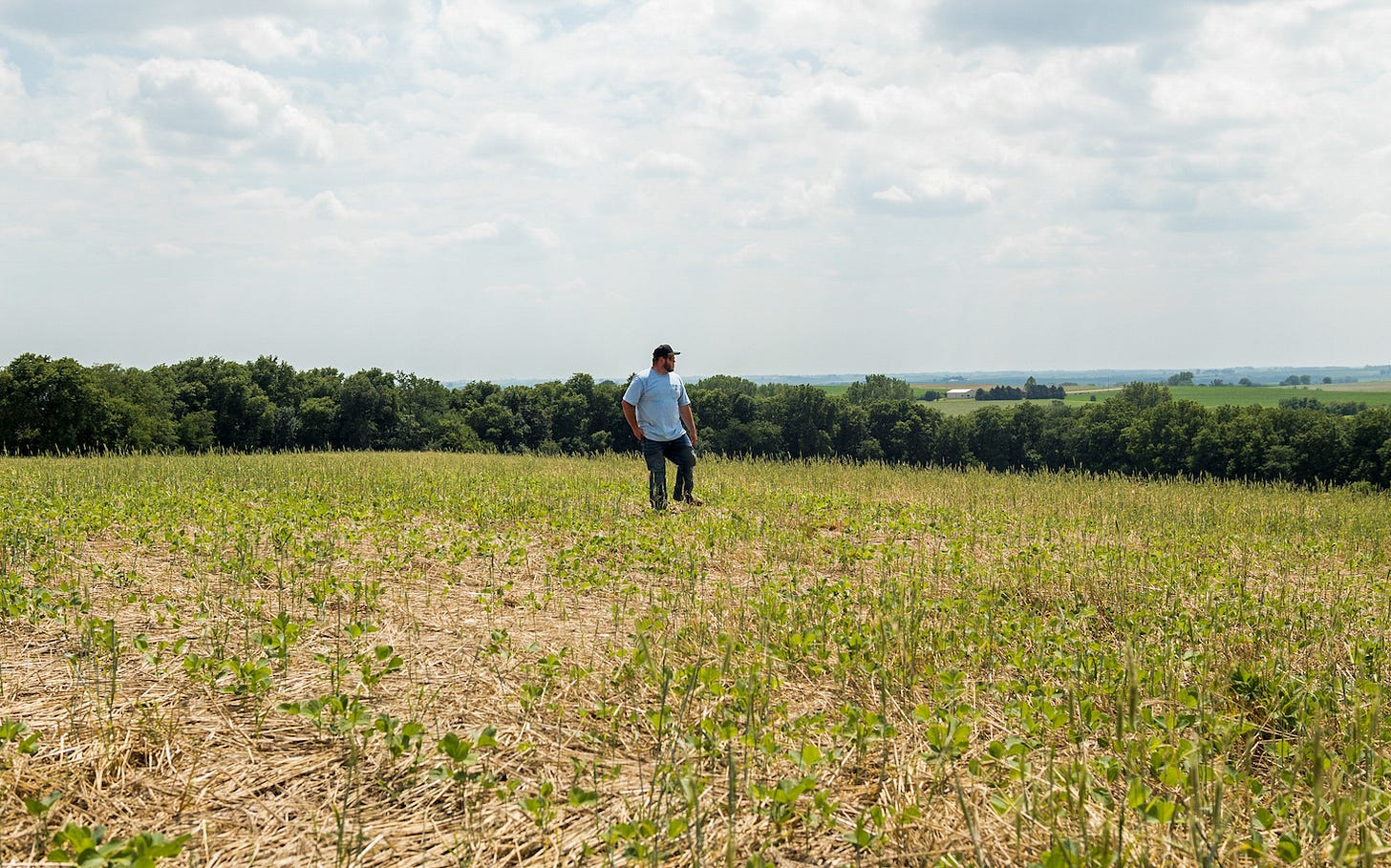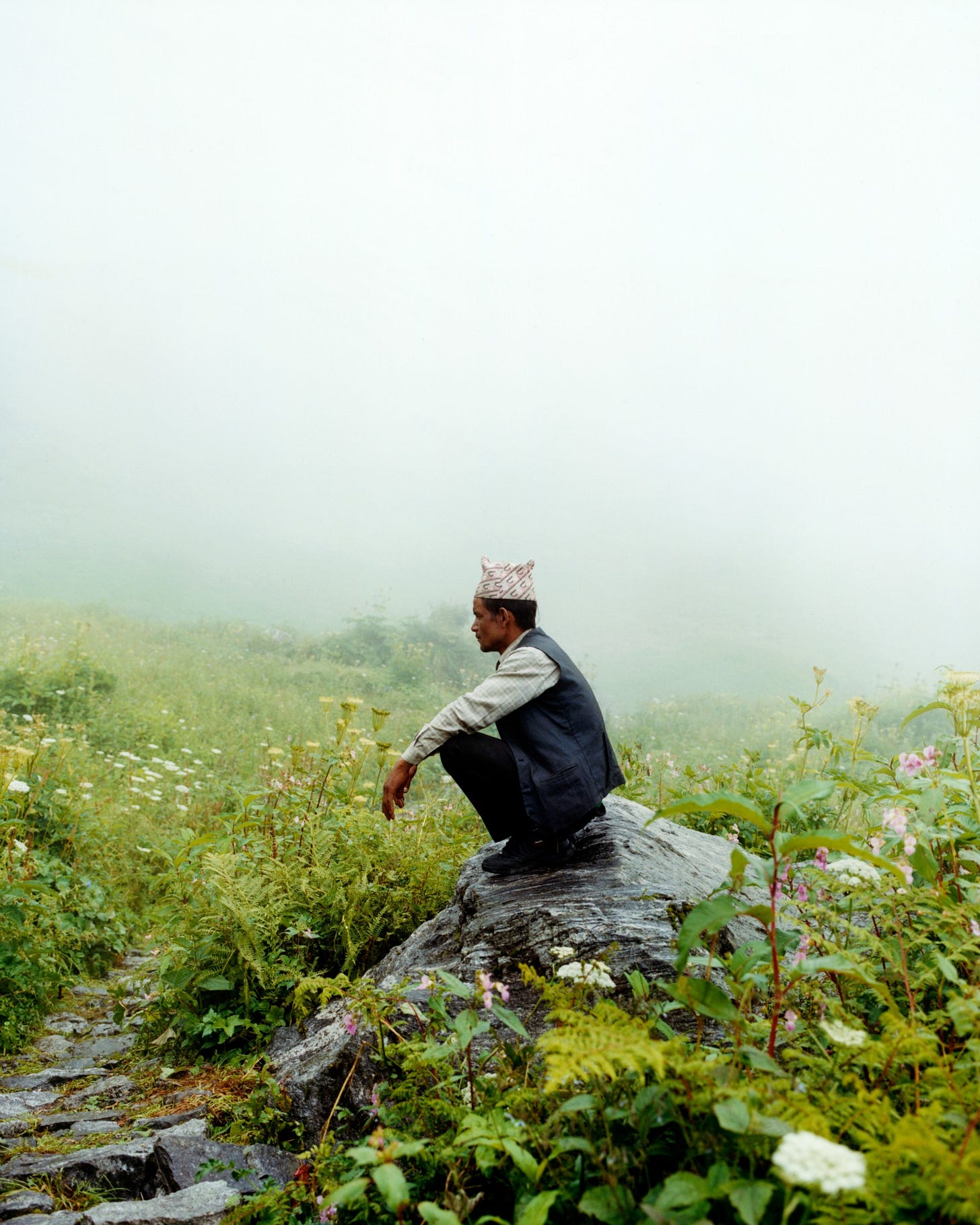No. 042: Nature and Belonging
Black History Month / Black Food Liberation / Winter Retreat Virtual Offering / Puerto Rico Educational Tour / California's Water Crisis / Saving Energy at Home / "Eco-Distress" / and more!
Good morning Regenerative School community!
Happy Black History Month! To kick off a month of service and intention, we recommend listening to “Black Food: Liberation, Food Justice and Stewardship” for the Bioneers Podcast.” In this episode, Karen Washington (co-owner/farmer of Rise & Root Farm) and Bryant Terry (Chef-in-Residence of MOAD, the Museum of the African Diaspora in San Francisco) explore the how Black Food culture is promoting community wealth, health, and justice. Black American agricultural heritage is rooted in ancestral African knowledge and traditions of shared labor, worker co-ops and botanical polycultures. Listen here to learn more.
This February, we also have so many transformative offerings online and in development! Courses, retreats, service trips… keep scrolling to learn more!
Our three-part Nature and Belonging series is LIVE ONLINE for a LIMITED TIME ONLY! With the transformative knowledge of Empower with Nature‘s Maya Galimidi, we will ground and re-build connection to place. We will explore diverse concepts and use phenomenological techniques to engage our senses and heighten our levels of observation. Through a deepened understanding of ecopsychology and the “ecological self” we will reconnect to place and purpose. Consider this class a personal invitation to ROOT: within yourself, and wherever you are. Gift yourself this new perspective for February.
For any and all interested in rēcharging and rēbalancing the mind, body, and spirit this winter season, we also have a heartfelt virtual offering exclusively available on our online library. This winter “rēTREAT” includes a meditation, yoga practice, caffeine-free chai recipe, Ayurvedic tips and more! Thana Numan, an Ayurvedic wellness counselor and therapeutic yoga instructor of Nourishing Wellness, and Caitlin Smith, owner and founder of Within Wellness have generously provided this thoughtful practice just for you. Check it out here!
Traverse the island of Puerto Rico and its diverse landscape on this immersive service learning trip. We will work with ISER Caribe, an incredible organization whose vision is to "promote healthy and sustainable livelihoods by endorsing a model that is economically viable and oriented towards the preservation of the environment and the empowerment of the local people'' (ISER). We will follow ISER’s lead as we engage with the environment and community service learning, as they have incredible connections throughout the island community. Education coupled with relaxation will facilitate deeper learning and reflection. We will visit important sites like the Tibes Indigenous Ceremonial Center, engage with critical communities such as the Cabo Rojo homesteaders, and admire the island's natural beauty from rainforests to bioluminescent bays. Trip dates: August 2-12, 2023.
Interested in embodied curiosity? Theologian and researcher Sara Jolena Walcott, founder of Sequoia Samanvaya, works at the cutting edge of this feeling in our three-part course “ReMembering the Origins of Climate Change.” Walcott lectures on the forgotten history of climate change, colonialism, racism, and church doctrine in this thought-provoking class. Click here to sign up for this asynchronous, inspiring online course.
“Confronting California’s Water Crisis” by Inside Climate News’ Liza Gross. A new report pushes state officials to protect water as a public resource and rein in corporate water abusers to deal with its increasingly uncertain water future.
The Washington Post’s Michael J. Coren breaks down how much of what we believe about energy saving at home is wrong in “We still use appliances like it’s 1970. There’s a better way.” For one, stop pre-rinsing your dishes when using your dishwasher.

PHOTOGRAPH BY FG TRADE VIA GRIST A new report says the key to saving Brazil’s Atlantic Forest is recognizing Indigenous territory. “The study looked at more than 100 Indigenous territories in Brazil’s Atlantic Forest and found that legal recognition of those lands can have real, and measurable, impacts on centuries of deforestation,” explains Grist’s Joseph Lee. Click here to read more.
Anthony Nicome of Civil Eats explore’s how Maryland’s new governor, Wes Moore, hopes use his food-systems experience to alleviate chronic food insecurity and break down the economic barriers that keep people hungry in a recent op-ed.
“The EU banned Russian wood pellet imports; South Korea took them all” by Mongabay’s Justin Catanoso uncovers the environmental impact of wood pellets, as opposed to coal, and the supply chain repercussions of the Russia’s War on Ukraine.

FARM MANAGER KYLE RHODD, PHOTOGRAPH BY IOWA TRIBE VIA GREEN BIZ “What does regenerative agriculture on a reservation look like?” Jesse Klein finds out for Green Biz. For the Iowa Tribe of Kansas and Nebraska, investing in regenerative agriculture over the past ten years has reinvigorated the soil and created a profit to buy back some of their tribal lands. Click here to read.
The New York Time’s Lisa Friedman examines the response to Biden clearing the way for an Alaska Oil Project. Environmentalists are pissed, Alaskan lawmakers and ConocoPhillips executives are relieved, but what happens next? Find out here.
“Eco-distress is a term mental health professionals use to describe the wide range of emotions people feel about the climate crisis—from grief to anxiety to rage,” writes Mélissa Godin for Atmos. Curious about how climate change is forcing therapists to mend the current mental health paradigm? Click here.
As mentioned earlier, in “Black Food: Liberation, Food Justice and Stewardship” for the Bioneers Podcast,” Karen Washington and Bryant Terry explore the how Black Food culture is promoting community wealth, health, and justice. Black American agricultural heritage is rooted in ancestral African knowledge and traditions of shared labor, worker co-ops and botanical polycultures. Listen here to learn more.

PHOTOGRAPHS BY ASHISH SHAH FOR ATMOS MAGAZINE “We are interbeings. We are interconnected. When we poison the Earth, we poison our bodies. When we pollute the atmosphere, we create climate chaos. When we destroy biodiversity, we create hunger, disease, and climate imbalance.” Click here to read Vandana Shiva’s, our dear friend, poetic musings on the importance and wisdom of biodiversity for Atmos.
What have you been reading? What have you been listening to? Write to us at admin@regenerativeschool.org and let us know.
Thank you and see you soon!
Adar and the Rē Team









